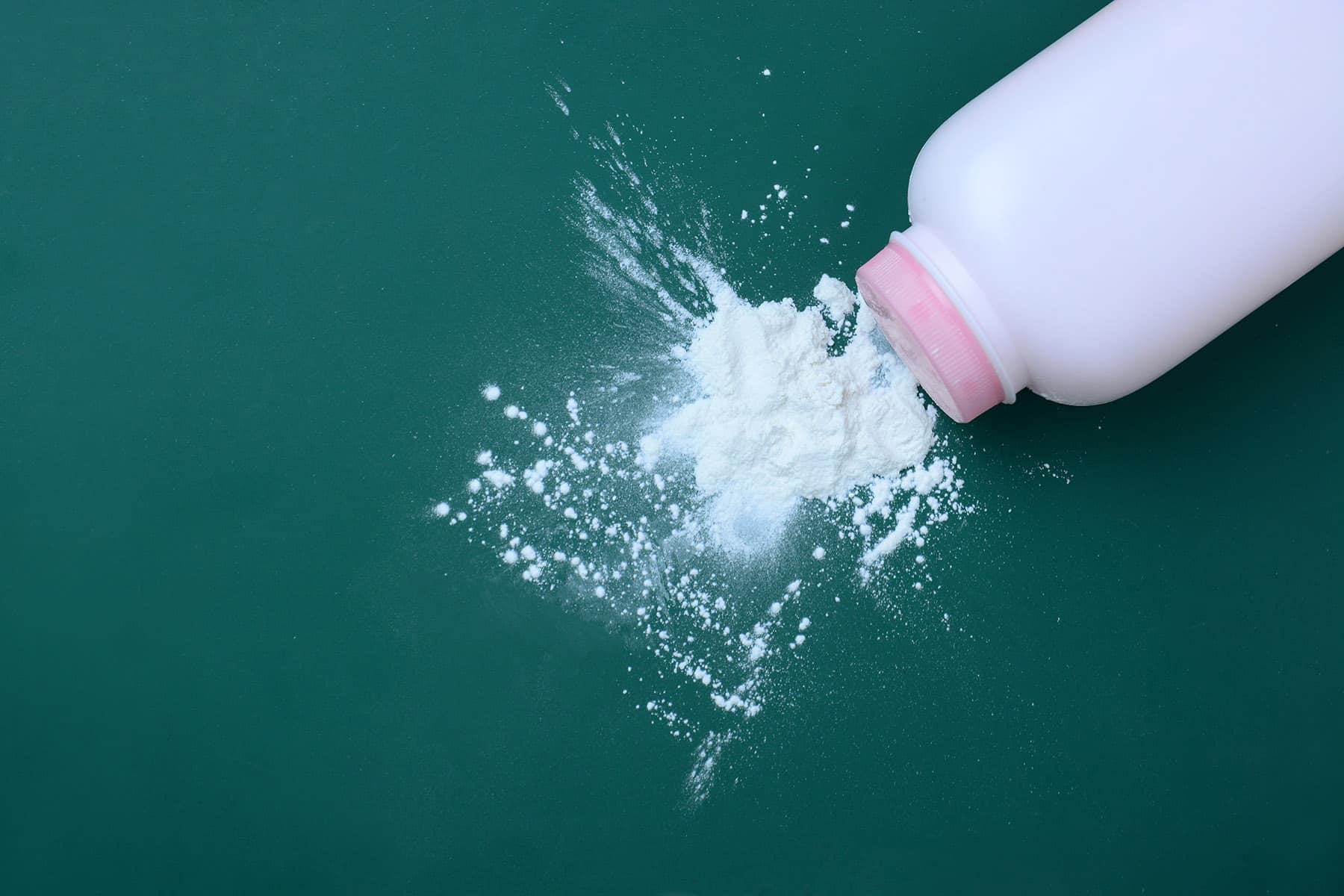Table of Contents
Talc is a naturally-occurring mineral that has been used by commercial and industrial manufacturers for decades. Johnson & Johnson released its iconic Johnson’s Baby Powder in 1893 after learning it could prevent diaper rash. Companies also began marketing talcum powder products to women for its ability to absorb moisture and control odor in the genital area. Talc powder became a staple product in households across America and has been used by thousands of women for many years.
While further studies are needed, some medical experts have advised consumers to stop using products that contain talcum powder because of the potential cancer risk. The serious health concerns have led to thousands of lawsuits against talcum powder manufacturers and Johnson & Johnson has now ended talc-based baby powder sales in North America.
Getting Help is Easy
Call Us Anytime. Nights And Weekends, We’re Available.
A Trusted, Experienced Partner
Fill out the form on the top of the page and a case specialist will reach out to you.
No Fees Unless We Win
No Win, No Fee. You Don’t Pay A Penny Unless We Win Your Case.
Talcum Powder Side Effects
For years, talcum powder was widely believed to be completely safe and was trusted by thousands of parents for use on their babies. However, talcum powder was never without risk and small babies were particularly vulnerable to its toxic effects.
Talc dust is incredibly dangerous if inhaled or swallowed and can cause:
- Coughing
- Wheezing
- Chest pain
- Difficulty breathing
- Vomiting
Due to these talcum powder side effects, Johnson & Johnson included a warning on its baby powder to “avoid inhalation.” In addition to this warning, many consumers believe that the company should have added another label warning people that long-term use could lead to the development of cancer.
Talc, Asbestos, and the Link to Ovarian Cancer
A widely controversial issue, questions about talc’s safety have been raised since the 1970s. Some talc in its natural form has been found to contain asbestos, a known cancer-causing substance that also occurs naturally in the earth.
The International Agency for Research on Cancer has said that talc contaminated with asbestos is “carcinogenic to humans.” Numerous studies have linked long-term talcum powder use to ovarian cancer and mesothelioma and the World Health Organization has stated that routine use of talc-based body powder is “possibly carcinogenic to humans,” a claim that Johnson & Johnson adamantly denies.
Talcum powder products sold in the U.S. have reportedly been “asbestos-free” since the 1970s. However, it’s possible that some products contaminated with asbestos remained on the market or that talc powder was never “asbestos-free” to begin with. What’s more, there is little government intervention into these concerns and the FDA cannot guarantee that talc powder doesn’t contain asbestos.
Alongside theories of asbestos contamination, some research has shown that talcum powder’s link to ovarian cancer is due to small particles migrating up the vaginal canal into the ovaries. Over time, these particles may cause chronic inflammation that can lead to cancer.
Has Your Child Experienced a Birth Injury?
Other Serious Diseases Linked to Talcum Powder
In addition to ovarian cancer and mesothelioma, some studies have shown links to other serious diseases, including:
- Talcosis
- Lung cancer
- Respiratory issues
- Pneumonia
- Asthma
What Should You Do If You Were a Regular User of Talcum Powder?
If you, like thousands of other Americans, have used talcum powder for feminine hygiene, it’s important to speak with your gynecologist to have the appropriate testing for ovarian cancer conducted.
Studies have cited between a 30 to 60 percent increased risk of developing ovarian cancer for women who regularly use talcum powder in their genital area than for women who don’t.
While Johnson & Johnson continues to defend the safety of its talcum powder products, stating that it has been asbestos-free since the 1970s and does not cause cancer, there is significant evidence suggesting a link between talcum powder and ovarian cancer and most experts agree that more testing should be done to confirm it.
Johnson & Johnson has halted all North American sales of their talc powder products but it’s important to take the proper precautions if you have been a regular user and safely dispose of any talc-based powder products you may have at home.
Taking Legal Action
If you have been diagnosed with cancer and believe it may be due to talc use, you should speak with an experienced talcum powder lawyer. Juries across the country have already awarded billions to people who have suffered harm from talc products and women across the country are continuing to take legal action against Johnson & Johnson.
The bottom line is that the company never warned consumers about the increased risk of cancer and investigations have been conducted into whether Johnson & Johnson intentionally covered up the health risks.
Goldwater Law Firm and our legal partners are currently helping women who have been diagnosed with ovarian cancer after regular talcum powder use take legal action. If you’re in this situation, it’s important to remember that you have rights and could be entitled to compensation for your losses and the pain you’ve endured. Family members of women who have died from ovarian cancer related to talc use may also be able to file a lawsuit.
Find out if you may qualify today by calling (844) 728-1704 or filling out our online form.
Lawsuit Information
Johnson & Johnson has faced thousands of lawsuits from cancer patients alleging that its talc powder products were contaminated with asbestos and the company knew of the risks. Learn more about the ongoing talcum powder litigation and whether or not you qualify for a lawsuit.


